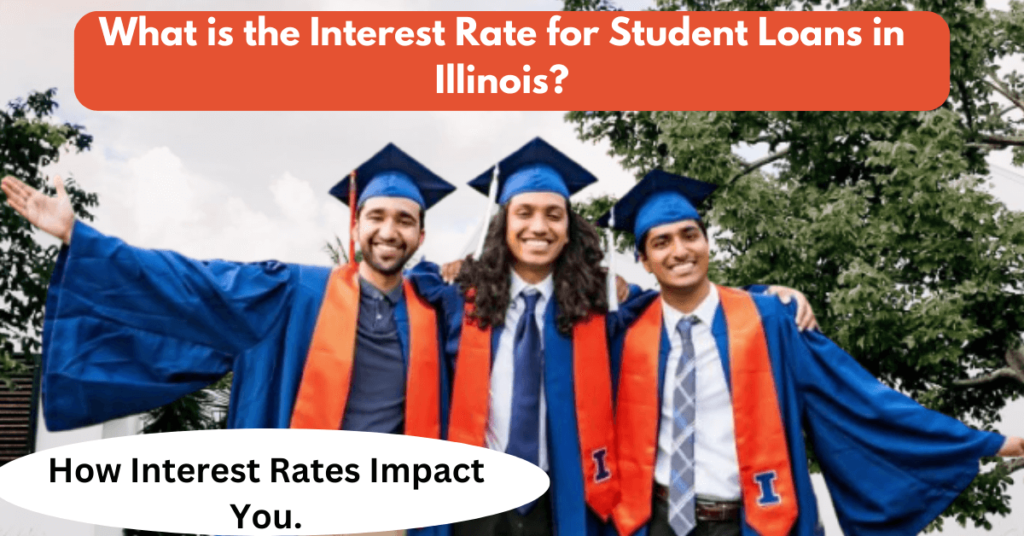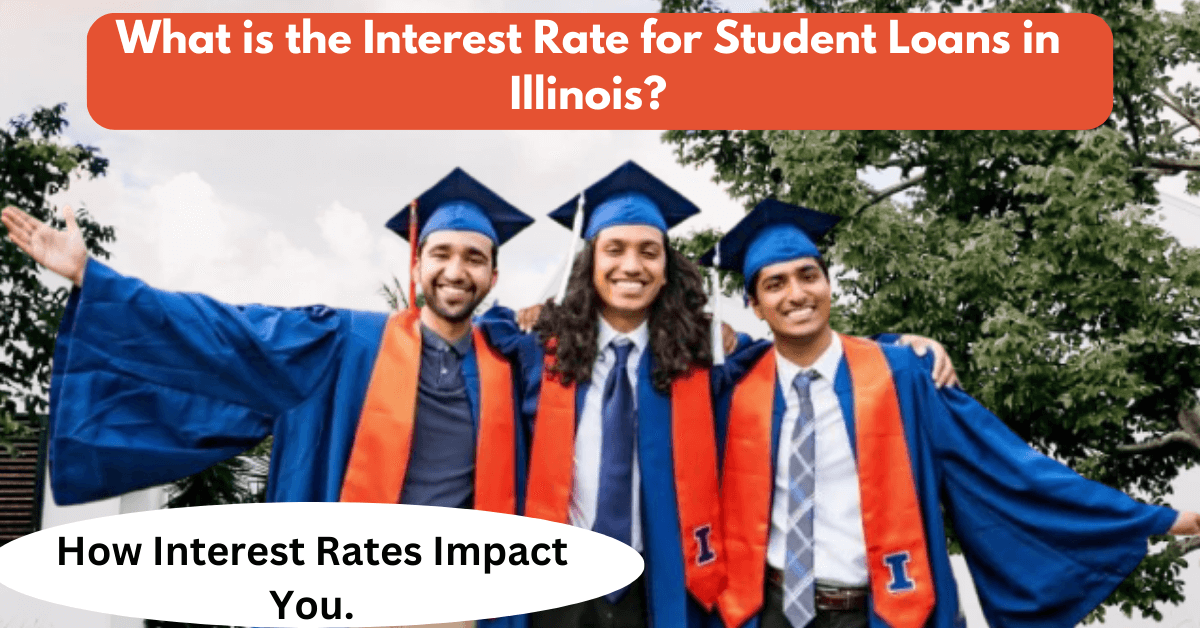What is the Interest Rate for Student Loans in Illinois?
What is the Interest Rate for Student Loans in Illinois? Student loans play a significant role in helping students finance their education. If you are a resident of Illinois or planning to study in the state, understanding the interest rates for student loans can be crucial. Interest rates vary based on loan types, lenders, and financial circumstances. This guide will help you navigate the complexities of student loan interest rates in Illinois, offering valuable insights and tips.

Understanding What is the Interest Rate for Student Loans in Illinois?
Interest rates are the cost of borrowing money, expressed as a percentage of the loan amount. They can either be fixed, remaining constant throughout the loan term, or variable, fluctuating based on market conditions. For student loans, interest rates depend on whether the loan is federal or private.
Federal Student Loans Interest Rates in Illinois
Federal student loans are provided by the U.S. Department of Education, and their interest rates are standardized nationwide. As of the 2023-2024 academic year, the interest rates for federal loans are:
- Direct Subsidized Loans (Undergraduate): 5.50% fixed
- Direct Unsubsidized Loans (Undergraduate): 5.50% fixed
- Direct Unsubsidized Loans (Graduate/Professional): 7.05% fixed
- Direct PLUS Loans: 8.05% fixed
These rates apply regardless of your state of residence, including Illinois. The federal government determines these rates annually, so they may vary each year.
Private Student Loans Interest Rates in Illinois
Private student loans are offered by banks, credit unions, and other private lenders. The interest rates for these loans are not standardized and can vary significantly based on factors like credit score, income, and the lender’s policies.
Factors Affecting Private Student Loan Interest Rates
- Credit Score: Borrowers with higher credit scores typically qualify for lower interest rates.
- Co-signer Presence: Having a creditworthy co-signer can reduce interest rates.
- Loan Term: Shorter loan terms often have lower interest rates.
- Lender: Different lenders offer varying interest rates and terms.
Comparing Federal and Private Loan Interest Rates in Illinois
While federal loans generally offer more predictable and lower interest rates, private loans may be advantageous for borrowers with excellent credit or those needing to cover additional expenses. Here’s a quick comparison:
| Aspect | Federal Loans | Private Loans |
|---|---|---|
| Interest Rates | Fixed, set by Congress | Variable or fixed, based on creditworthiness |
| Loan Benefits | Forgiveness programs, deferment, income-driven repayment options | Limited benefits; depends on the lender |
| Credit Requirement | None | Credit score and income dependent |
What is the Interest Rate for Student Loans in Illinois for Refinancing?
Student loan refinancing allows borrowers to replace existing loans with a new one, potentially securing a lower interest rate. In Illinois, refinancing rates for student loans typically range from 3% to 8%, depending on the lender and borrower’s credit profile. Refinancing is particularly beneficial for borrowers with high-interest private loans or improved credit scores since taking out the original loan.
Pros and Cons of Refinancing
Pros:
- Potentially lower interest rates
- Simplified repayment with a single loan
- Flexible terms to adjust monthly payments
Cons:
- Loss of federal loan benefits (e.g., forgiveness programs)
- May require a high credit score
How to Secure the Best Interest Rates for Student Loans in Illinois
Getting the best interest rates requires careful planning and research. Here are some actionable steps:
- Research Lenders: Compare multiple lenders, focusing on their interest rates, fees, and repayment options.
- Improve Your Credit Score: Pay off debts, lower credit utilization, and ensure timely payments to boost your credit score.
- Consider a Co-signer: A co-signer with strong credit can help you qualify for better rates.
- Opt for Fixed Rates: Fixed rates are more predictable and protect against market fluctuations.
- Apply Early: Loan offers can change, so applying early ensures you lock in favorable rates.
Illinois-Specific Resources for Student Loans
Illinois offers additional resources to help students manage education costs:
- Illinois Student Assistance Commission (ISAC): Provides guidance and resources for state residents seeking financial aid.
- MAP Grant: A state-specific grant for Illinois students with financial need, helping reduce reliance on loans.
- Employer-Sponsored Loan Repayment Programs: Some Illinois employers offer student loan repayment assistance as a benefit.
Frequently Asked Questions
1. Can I negotiate private student loan interest rates in Illinois? Yes, some private lenders allow borrowers to negotiate interest rates, especially if you have a high credit score or a reliable co-signer.
2. Are there 0% interest student loans available in Illinois? While rare, some local organizations or employers may offer 0% interest loans or grants as part of their education initiatives.
3. What happens if I miss a payment on my student loan in Illinois? Missing payments can lead to penalties, increased interest rates, and damage to your credit score. Contact your lender immediately if you’re unable to pay.
Final Thoughts
Understanding what the interest rate for student loans in Illinois entails is vital for making informed financial decisions. Whether you’re opting for federal loans, private loans, or refinancing, research and planning can save you significant money in the long run. Take advantage of Illinois-specific resources and programs to minimize debt and ensure a smoother financial journey through your educational endeavors.

